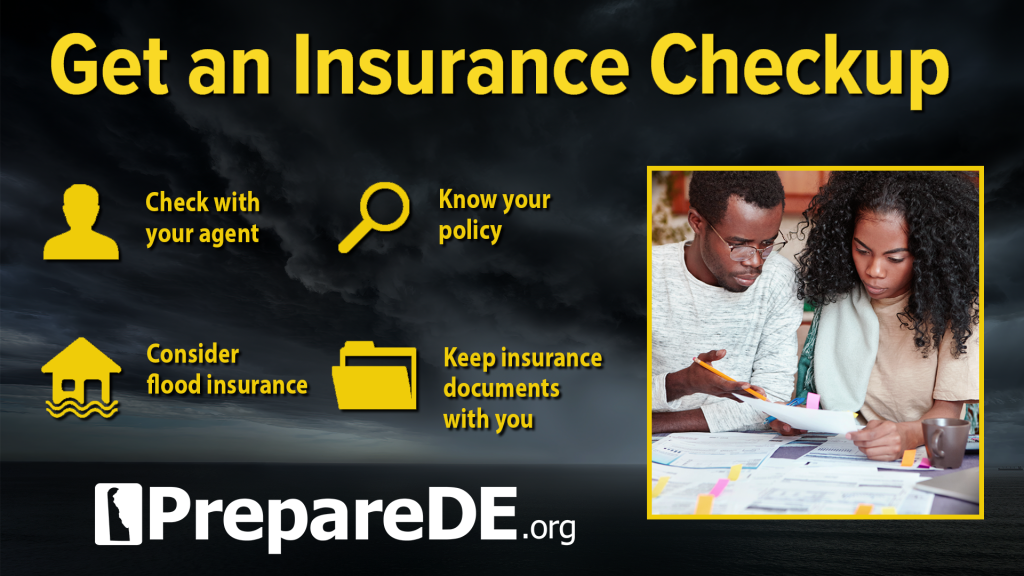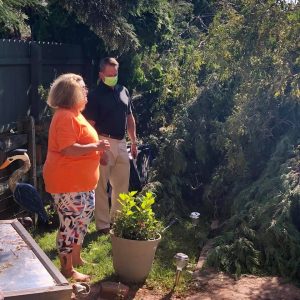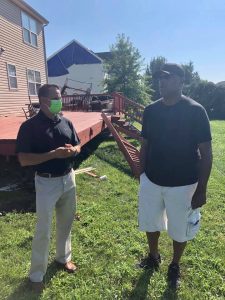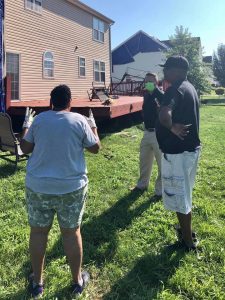Governor John Carney and Lt. Governor Bethany Hall-Long have proclaimed March 11 to March 15 as Severe Weather Awareness Week in Delaware. In recent years, Delaware has experienced flooding, tornadoes, and coastal storms that put lives and property at risk and adversely impact the health, safety, and economic well-being of families, businesses, and schools. Learning about the different types of hazards can increase preparedness and reduce the devastation caused by severe weather.
The Delaware Emergency Management Agency (DEMA) is joining with the National Weather Service in Philadelphia/Mount Holly, NJ, the Center for Environmental Monitoring and Analysis (CEMA) at the University of Delaware, and Delaware Sea Grant to raise awareness. Flooding, coastal storms, tornadoes, and lightning are just some of the weather threats that can occur in Delaware, often with little warning. The National Weather Service is hosting a “Severe Weather Awareness Week” webpage with many informative resources and links to NOAA’s Weather-Ready Nation website. Tips on making a family plan, building a preparedness kit, and staying informed can be found at PrepareDE.org.
Delaware Emergency Management Agency Director A.J. Schall said, “Preparing for severe weather is important because it can reduce the risks of injury, death, and property damage. These weather events are becoming more frequent and intense. You can protect yourself and your loved ones by being informed, alert, and ready.”
Residents are urged to follow along on DEMA’s social media accounts for a different weather hazard each day, providing historical context as well as links to valuable information on how to keep your family safe.
- Monday, the topic will be flooding
- Tuesday, the topic will be tornadoes and tornado safety
- Wednesday, the topic will be severe thunderstorms and hail
- Thursday, the topic will be lightning safety
- Friday, the topic will be preparing for severe weather
Delaware Severe Weather Awareness Week is a reminder that Delaware has been hit with many major weather events within the past four years. Record rainfall from the remnants of Hurricane Ida in 2021 caused historic flooding in parts of downtown Wilmington, Tropical Storm Isaias in 2020 spawned the longest tornado ever recorded in Delaware, which wreaked a path of destruction as it traveled from Dover in Kent County to Glasgow in New Castle County. This year also marks almost one year since a tragic tornado fatality occurred on April 1, 2023 in Sussex County. It was the first tornado-related death since two people were killed near a mobile home community near Hartly on July 21, 1983.
Nationally, NOAA reports that 2023 was the most historic and costly year on record for disasters. There were 28 weather and climate disasters in 2023 – surpassing the previous record of 22 in 2020 – causing at least $92.9 billion in damages. Experts believe extreme weather is increasing due to climate change while studies suggest that the human cost of climate-related disasters is acutely undercounted. A U.S. Census Bureau report estimated at least 2.5 million people were displaced by weather disasters in 2023. The University of Delaware Disaster Research Center – now celebrating its 60th anniversary – found disasters disproportionately affect low-income groups while widening existing inequities.
According to Kevin R. Brinson, Associate State Climatologist at the University of Delaware Center for Environmental Monitoring and Analysis (CEMA), average temperatures are generally increasing and precipitation is also getting more extreme. The intensity of tropical systems is also increasing as sea surface temperatures increase. Sea levels are definitely rising and the rate of rise could accelerate during the 21st century if large ice sheets continue melting in Greenland and Antarctica. Data shows that, on average coastal storms occur most often during March, but also are more likely in other months, such as May, August, September, and December. To check out Delaware climate records, visit the Delaware Climate Office Website. Scientists say it’s possible that climate extremes may become more common in future decades, particularly heat-related ones. Which is why being prepared for extreme weather is more important than ever:
“Our weather isn’t getting less extreme, so preparing for the next storm also prepares us for future extreme events,” Brinson said.
Flooding
Flooding is the most frequent and expensive natural disaster in Delaware and the USA and it can also be deadly. Over a 30-year period, flooding caused more fatalities on average than every other weather event except excessive heat. When a flood is imminent or occurring, the top priority should be the physical safety of family members and pets. Monitor local news and weather reports and sign up for emergency alerts. Have a communication plan ready in the event of a power outage. The best way to protect your home and belongings from flood damage is to buy and maintain home insurance and purchase flood insurance – don’t let your hard work and your family’s future be washed away. Experts recommend the following steps to prepare for a flood:
- Buy and maintain home insurance and get a regular insurance checkup
- Get information on flood insurance at FloodSmart.gov
- Find out your flood risk at the DNREC Flood Planning Tool Website
- Take a household inventory with photos and store important documents
Delaware Sea Grant is partnering with other agencies to host the “2024 Flood Insurance Forum: Fact vs. Fiction? Everything You Need to Know About Flood Risks and Insurance” on April 3, 2024 (in person and virtual) at the Lewes Public Library, from 9 to 11 a.m. For more information, contact Danielle Swallow at dswallow@udel.edu The public can register at www.deseagrant.org/flood-forum
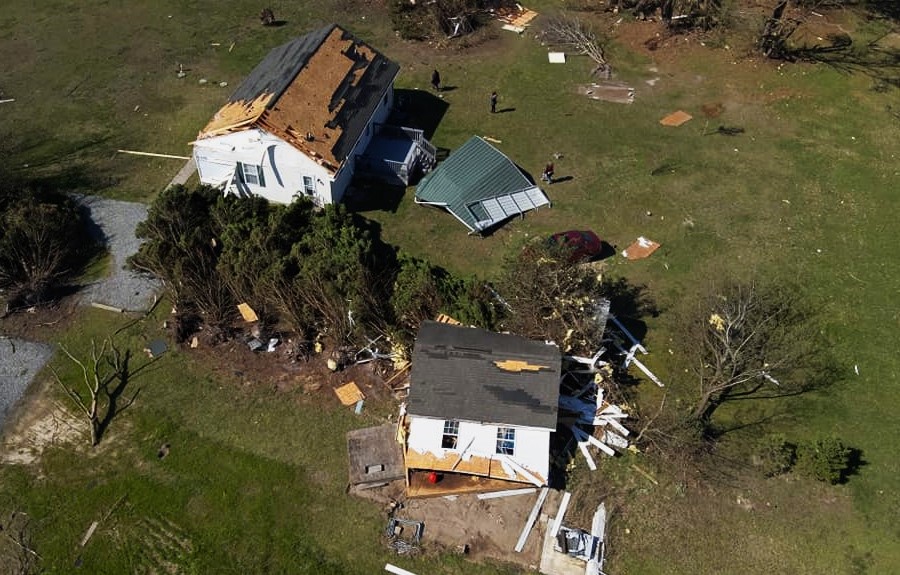
Tornadoes
Tornadoes are violently rotating columns of air that extend from a thunderstorm to the ground. Tornadoes can destroy buildings, flip cars, and create deadly flying debris. Tornadoes are not common in Delaware; however, when they do occur, they can cause serious property damage and threaten human lives. Tornadoes can occur anytime and anywhere, look like funnels and bring intense winds up to 200 miles per hour. Experts recommend the following steps to prepare:
- Because tornadoes come with little or no warning, you should know the signs of a tornado: including a rotating, funnel-shaped cloud, an approaching cloud of debris, or a loud roar like a freight train.
- Sign up for Delaware’s Emergency Notification System at de.gov/dens, download the FEMA mobile app, and enable local alerts for your area. Always follow the advice of state and local officials.
- If your area is under a tornado warning, go to a safe shelter immediately, such as a safe room, basement, storm cellar or a small interior room on the lowest level of a sturdy building.
- Stay away from windows, doors, and outside walls.
- Do not go under an overpass or bridge. You’re safer in a low, flat location.
- Watch out for flying debris that can cause injury or death.
- Use your arms to protect your head and neck.If you can’t stay at home, make plans to go to a public shelter.
Find DEMA on Social Media: Facebook, X, Instagram, Youtube, Nextdoor
